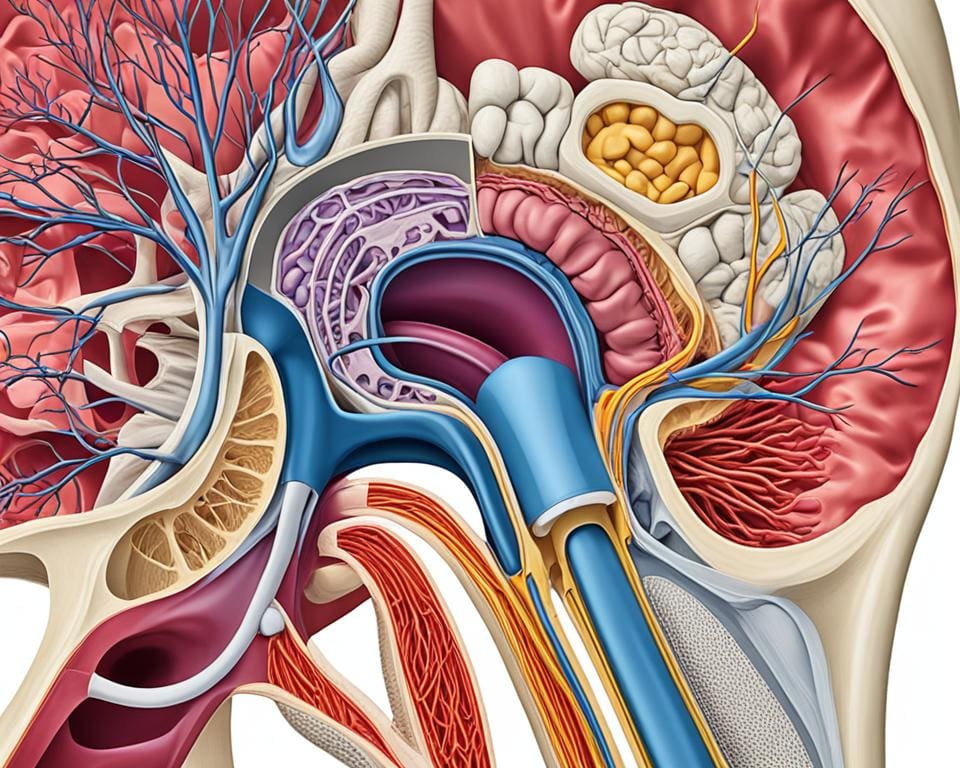Vertigo is often misconceived as a benign condition, yet it can signal serious health challenges lurking beneath the surface. Understanding what diseases cause vertigo is vital for anyone who experiences these disorienting sensations. Recognizing the early signs and symptoms can pave the way for effective vertigo diagnosis and management, enabling a more proactive approach to health. In this article, we will delve into vertigo causes and treatment options, drawing on insights from reputable sources like the Mayo Clinic and the American Academy of Otolaryngology. Equip yourself with knowledge and take the first steps toward conquering vertigo!
Understanding Vertigo: Symptoms and Conditions
Gaining clarity on the vertigo symptoms and conditions is essential for recognizing and addressing this often-debilitating experience. Vertigo can manifest in various ways, making it crucial to understand how it differs from general dizziness. By identifying these differences, individuals can seek appropriate treatment and improve their quality of life.
Common Symptoms Associated with Vertigo
Individuals experiencing vertigo may notice a variety of symptoms that significantly affect their daily routines. Some of the most prevalent signs include:
- Sensation of spinning: This feeling can be intensely disorienting and may be mistaken for dizziness.
- Unsteadiness: Many report a loss of balance, making even simple movements challenging.
- Lightheadedness: This may accompany vertigo symptoms and can exacerbate feelings of disorientation.
Understanding these symptoms helps individuals articulate their experiences to healthcare providers, leading to better diagnosis and management.
How Vertigo Differs from Dizziness
While both dizziness and vertigo describe unsettling sensations, they are not interchangeable. Dizziness usually refers to a general feeling of unsteadiness or lightheadedness without the specific sensation of motion. In contrast, vertigo is characterized by a profound sense of spinning or movement, often linked with underlying conditions affecting the inner ear or brain.
Recognizing these distinctions is crucial for effective communication with medical professionals, ultimately aiding in the identification of common causes of dizziness and vertigo.

What Diseases Cause Vertigo
Understanding the medical conditions linked to vertigo provides a clearer perspective on its diverse manifestations. Numerous diseases can trigger episodes of dizziness, each presenting unique symptoms and impacts on the body. Knowing what diseases cause vertigo enhances awareness and facilitates informed discussions with healthcare providers.
Inner Ear Disorders and Their Impact on Balance
Inner ear disorders serve as primary culprits in the onset of vertigo. Conditions such as Meniere’s disease and labyrinthitis disrupt the vestibular system, which is essential for maintaining balance. Meniere’s disease, characterized by fluctuating hearing loss and tinnitus, may lead to severe spinning sensations. Similarly, labyrinthitis, often caused by infections, inflames the inner ear structures, resulting in acute vertiginous episodes.
Neurological Disorders and Vertigo
Neurological disorders and vertigo intertwine, revealing complex interactions within the central nervous system. Migraines can produce vestibular symptoms, including dizziness and imbalance. Multiple sclerosis presents another layer, as it may affect nerve pathways that regulate balance, causing unpredictable vertigo episodes. Understanding these connections proves vital for accurate diagnosis and management.
Vestibular Disorders and Their Symptoms
Vestibular disorders are characterized by a range of symptoms that can significantly impact daily life. These disorders may manifest as spinning sensations, balance difficulties, or visual disturbances. Patients often experience feelings of disorientation or unsteadiness, making it challenging to engage in routine activities. Recognizing the unique symptoms associated with vestibular disorders and vertigo empowers individuals to seek appropriate care.
Additional Causes of Dizziness and Vertigo
A variety of factors contribute to dizziness and vertigo beyond the aforementioned conditions. Anxiety and stress can amplify feelings of unsteadiness, intensifying vertiginous experiences. Certain medications may have side effects that include dizziness, complicating the clinical landscape. Identifying these additional causes is crucial for a comprehensive understanding of vertigo and its management.
Diagnosing and Managing Vertigo Effectively
Effective vertigo diagnosis and management require a thorough understanding of the various symptoms and their underlying causes. Healthcare providers utilize a combination of physical examinations, medical history assessments, and advanced imaging studies, such as MRIs or CT scans, to accurately identify the factors contributing to vertigo. This comprehensive approach ensures the tailored management of vertigo attacks, focusing on specific vertigo causes and treatment options that align with individual patient needs.
Once a precise diagnosis has been established, managing vertigo attacks can be approached through several strategies. Lifestyle adjustments, including staying hydrated and implementing balance exercises, can play a significant role in reducing episodes. Additionally, medical interventions such as vestibular rehabilitation therapy or specific medications may be recommended based on individual requirements. Engaging with healthcare specialists ensures the development of personalized treatment plans, empowering individuals to regain control over their symptoms.
Education is key in implementing these management strategies effectively. By learning triggers for their vertigo and practicing techniques provided by medical professionals, individuals can significantly improve their quality of life. Most importantly, always seek guidance from healthcare providers, including insights from organizations like the American Academy of Neurology, to stay informed about the best practices for vertigo diagnosis and management, ensuring a proactive approach to health and well-being.









